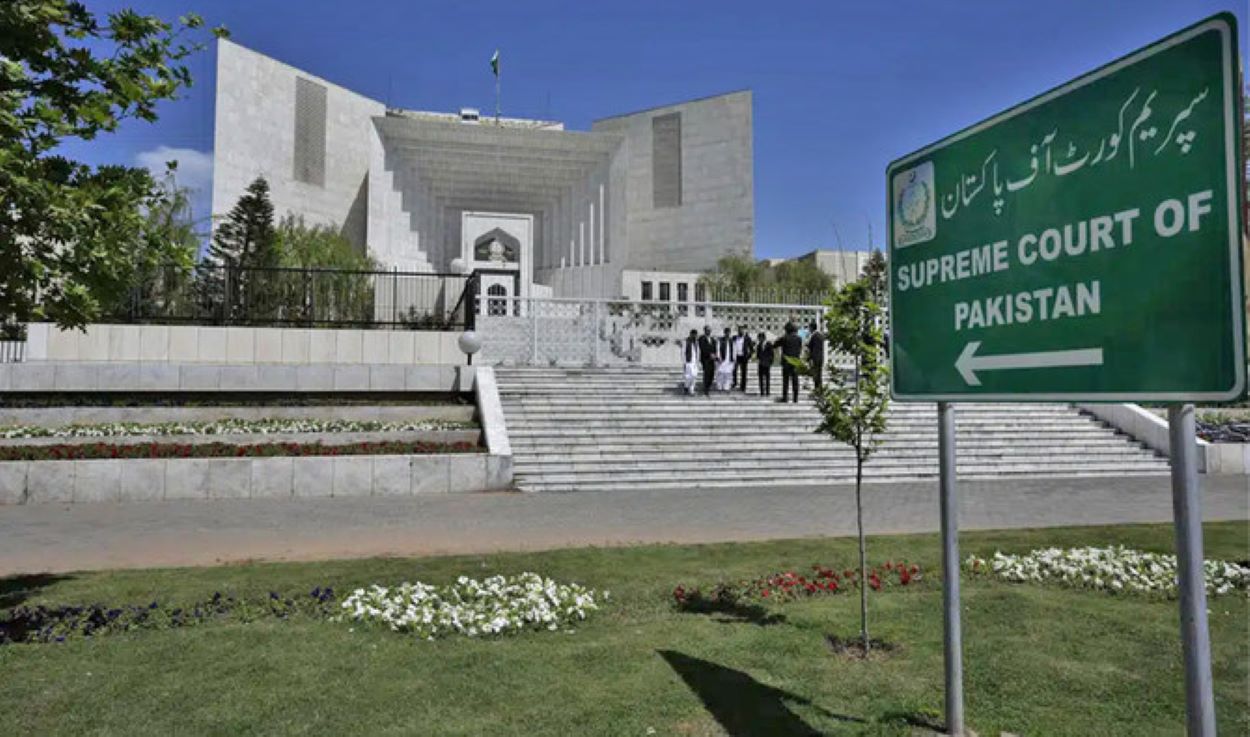On Monday, the Supreme Court of Pakistan released a detailed verdict on the reserved seats case, affirming the Pakistan Tehreek-e-Insaf (PTI) as a “political party” eligible for the seats’ quota.
The 70-page judgment, authored by Justice Mansoor Ali Shah, addressed the National Assembly Speaker Ayaz Sadiq’s concerns about implementing the court’s earlier decision from July 12, following amendments to the Election Act 2017.
Sadiq pointed out that amendments to Sections 66 and 104-A of the Election Act altered the conditions related to independent candidates and their association with political parties. He also noted the legislation’s retrospective effect dating back to 2017.
Justice Shah’s ruling clarified that a party lacking an electoral symbol does not strip it of its constitutional right to participate in elections. The judgment also responded to the Election Commission of Pakistan (ECP) removing PTI’s “bat” symbol due to alleged irregularities in intra-party elections, stating, “The Constitution and the law do not prevent any political party from fielding candidates.”
This verdict follows the ECP’s decision on March 1, which the court found contradictory to the Constitution. It rejected the Sunni Ittehad Council’s plea for reserved seats and chose to allocate them to other parties based on proportional representation.
The judgment highlighted the ECP’s failure to guarantee democratic processes, emphasizing its role in ensuring free and fair elections to maintain public trust.
Read: PTI Approaches Supreme Court For Clarification on Reserved Seats Issue
Moreover, the court addressed the controversial issue of PTI’s status in legal proceedings, stating that the case was exceptional and focused more on democratic principles and the electorate’s fundamental rights than procedural formalities.
The court also criticized the dissenting note from Justices Amin-Ud-Din Khan and Naeem Akhtar Afghan, which had questioned the procedural aspects of the July 12 verdict, suggesting their comments were unbecoming of Supreme Court justices.
Justice Shah’s verdict reaffirmed that a party’s failure in intra-party elections, as per Section 209 of the Elections Act, does not lead to its de-listing. He explained that a political party’s juristic nature implies that it acts through natural persons; hence, Gohar Ali Khan’s assumption of PTI’s leadership was valid and effective after the disputed intra-party elections.
Read: Pakistan’s Cabinet Approves Supreme Court Amendment Ordinance 2024
This detailed judgment underscores the judiciary’s role in interpreting electoral laws and ensuring that legal technicalities do not undermine fundamental democratic rights.






